How might we improve the aging in place experience for older adults and their loved ones?
Aging adults and their adult children in the U.S.
85% of adults aged 65+ want to age in place; however, medical and financial support to do so is increasingly unavailable.
The number of U.S. adults age 65+ will double by 2030 to 20%+ of the population. Despite the plethora of products in the "Silver Economy", the continued challenges experienced by families aging in place demonstrates unmet market need.
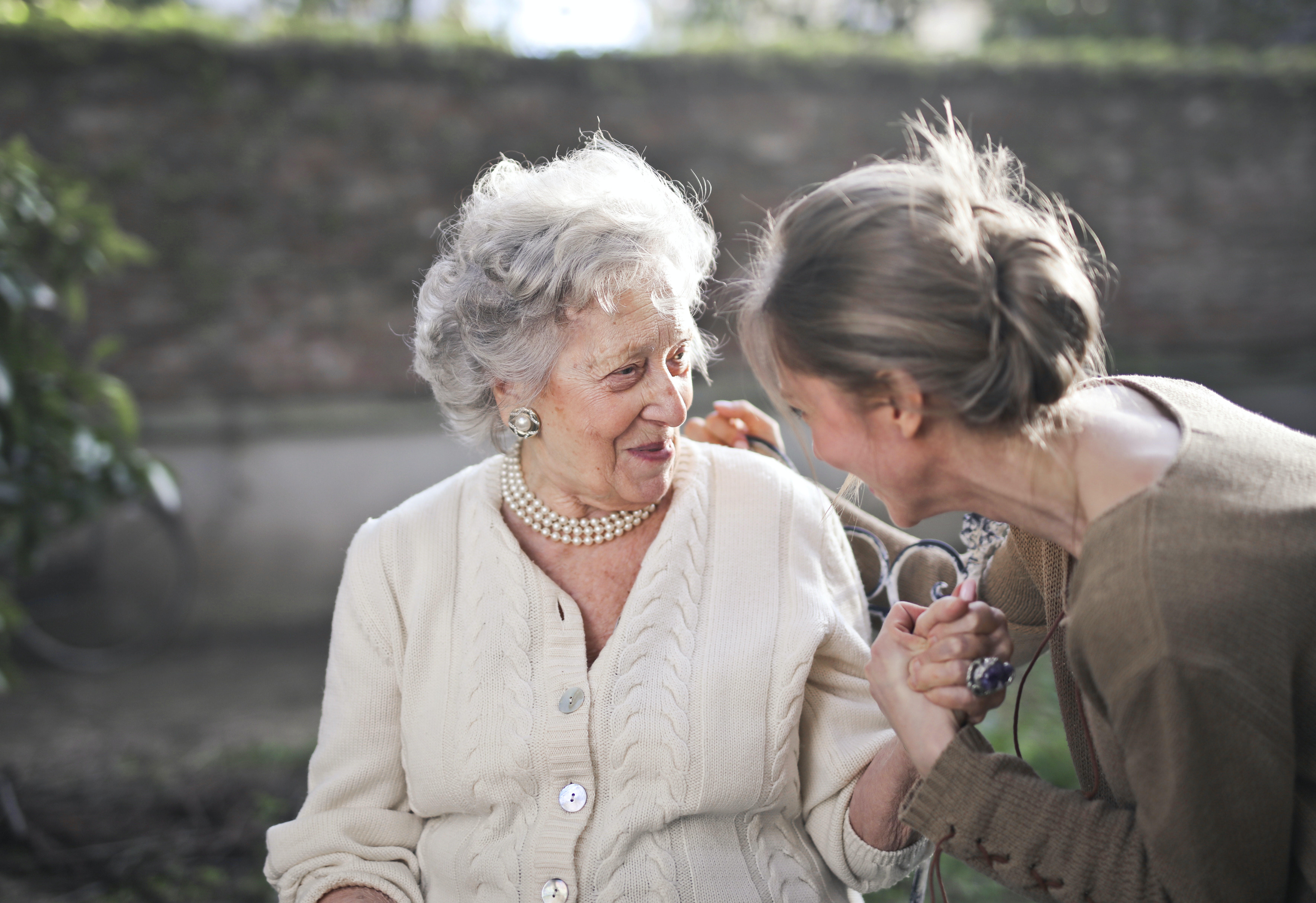
Across 6 months my team of five researchers and designers spoke with 140+ aging adults, adult children, and experts in aging and social technologies. Our goal was to uncover how aging adults and their children think about preparing for retirement, how they engage around tough conversations, and where their biggest pain points and motivators lie. Such emotional topics were difficult to unpack with just semistructured interviews, and we accordingly resorted to emotive and visual methods using storyboards, a digital collage activity, and directed storytelling.
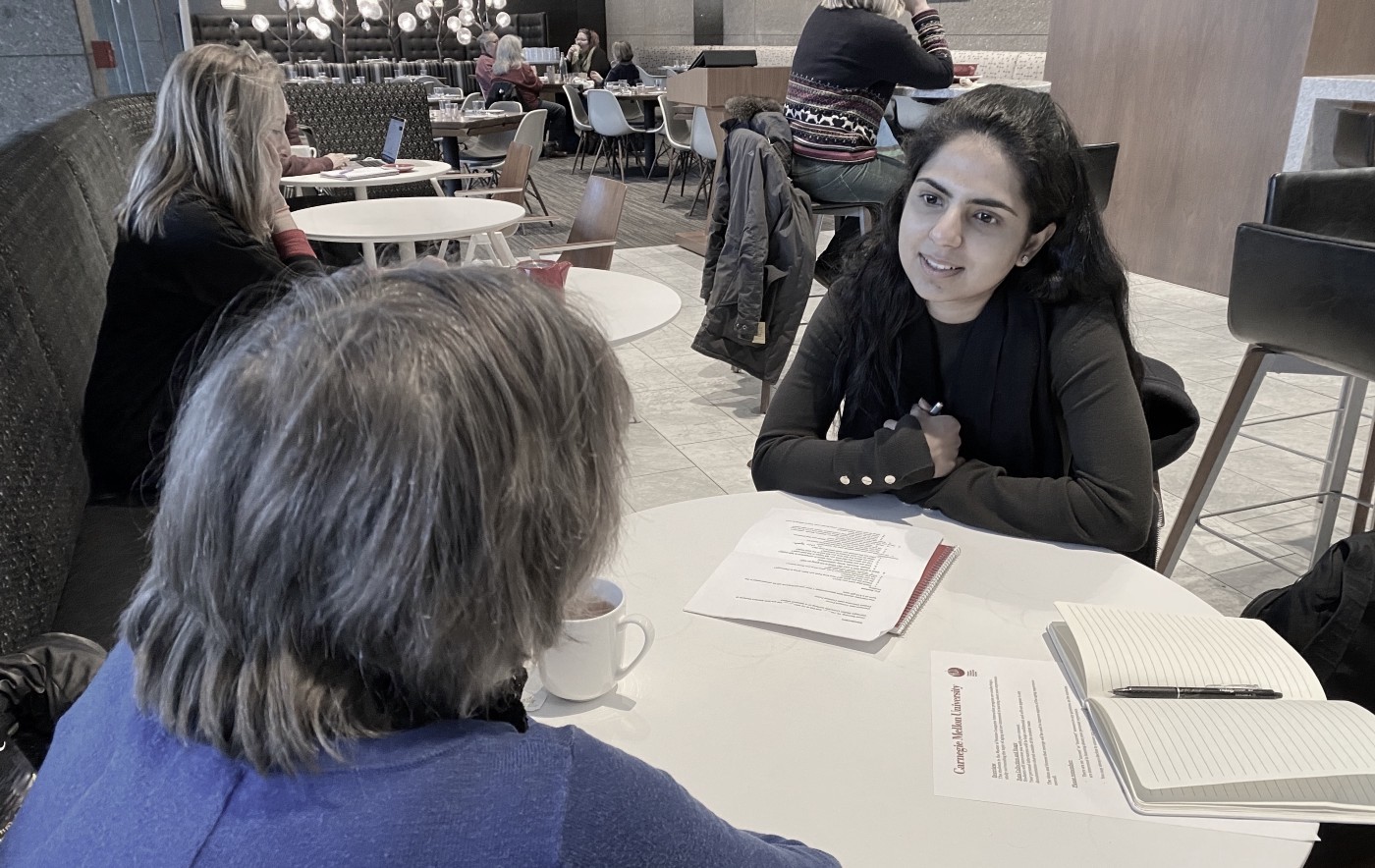
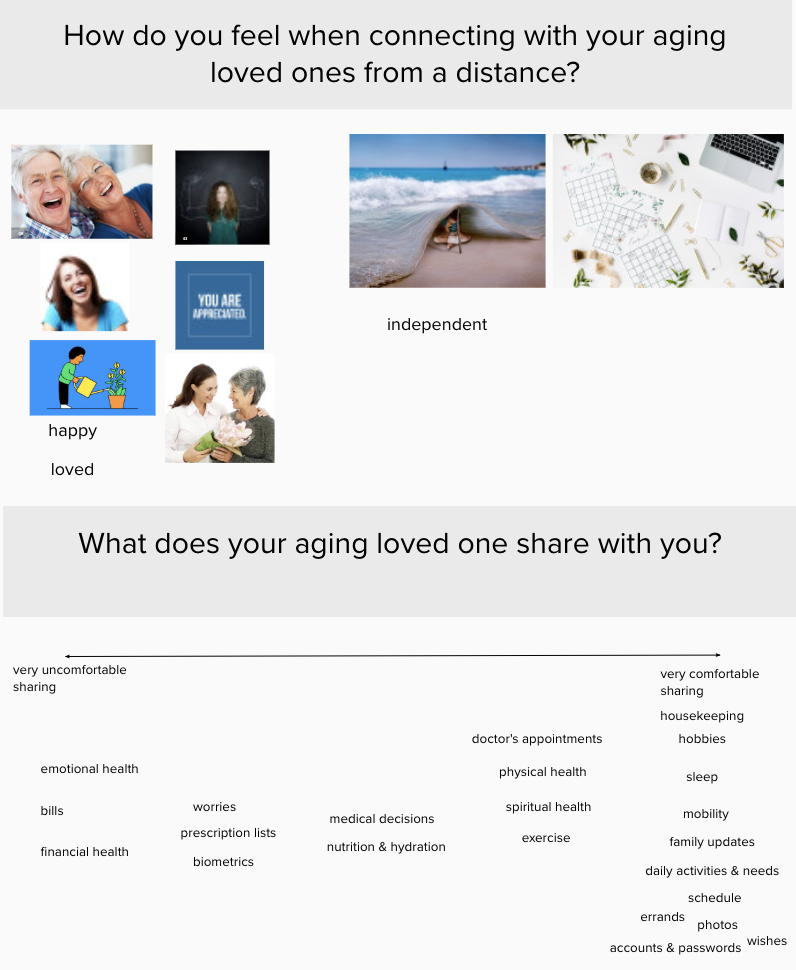
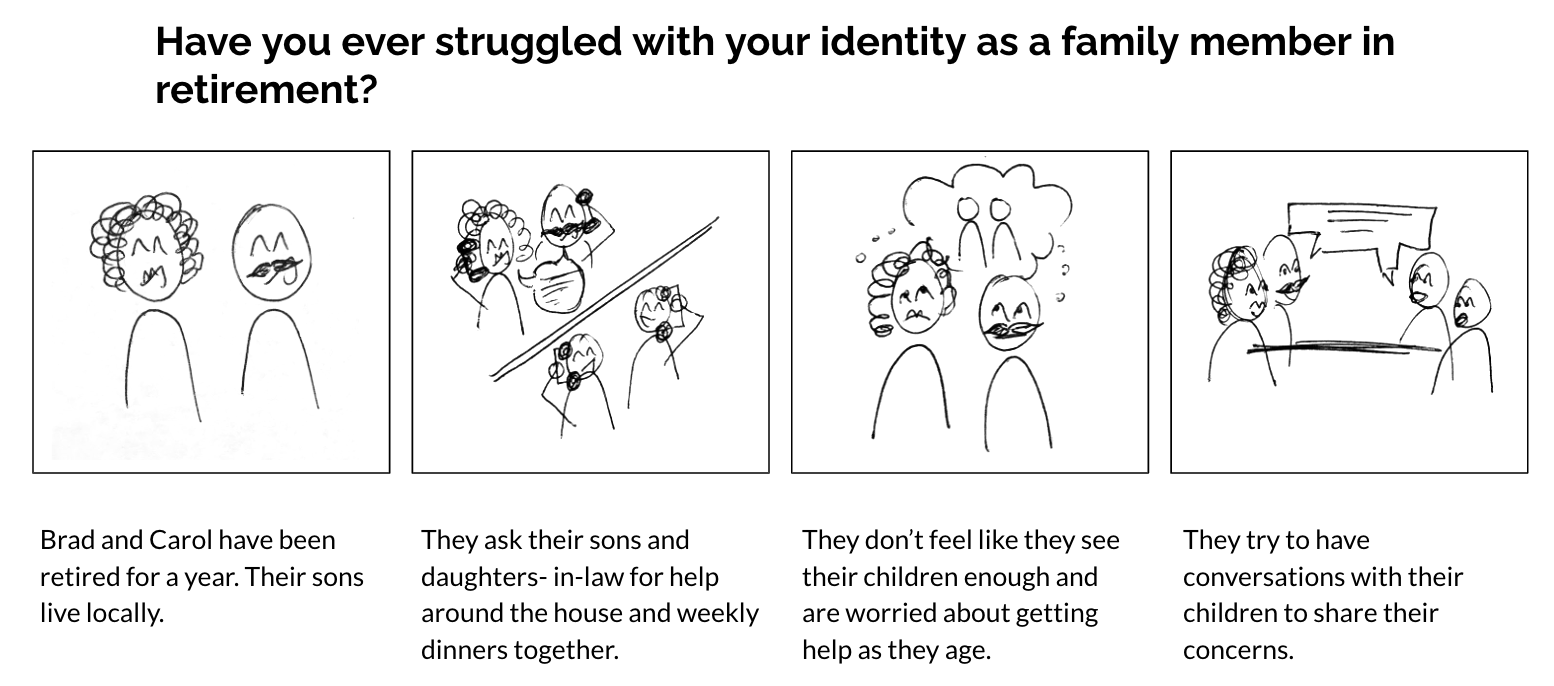
Hmmm...Let's lean into this
1. Aging adults frequently resist products and services that remind them of their declining health.
2. For both aging adults and their families, a positive aging experience centers around authentic connection and emotional support.
3. Aging adults are more comfortable sharing health information when their children ask, but neither is comfortable broaching the conversation.
Designing a radically new experience in connection and care
My team and I needed to design a product or service that would help alleviate the concern of adult children for their parents
living at a distance. For this to succeed, aging adults would need to preventively (and heartily) adopt this solution - a key failure of
smart home monitors, health monitors, and similar products.
After rounds of uninspired reactions from older adults to different concepts, we leaned into their motivators - keeping up with their families,
sharing stories and wisdom, and living in the moment. How could our solution create this experience for older adults while providing peace of mind to their children?
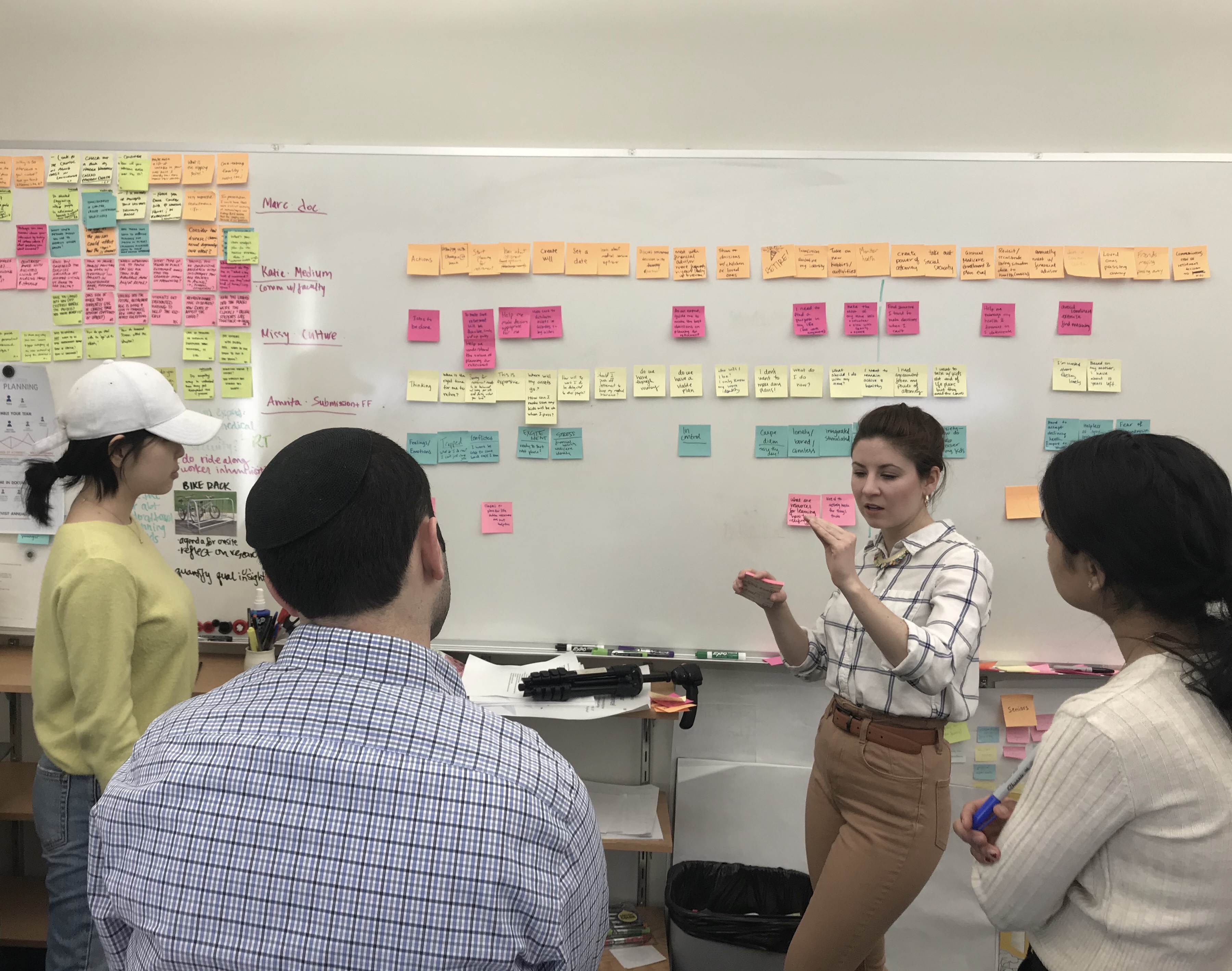
Meet Hula: a multigenerational video-sharing platform for connection & wellbeing
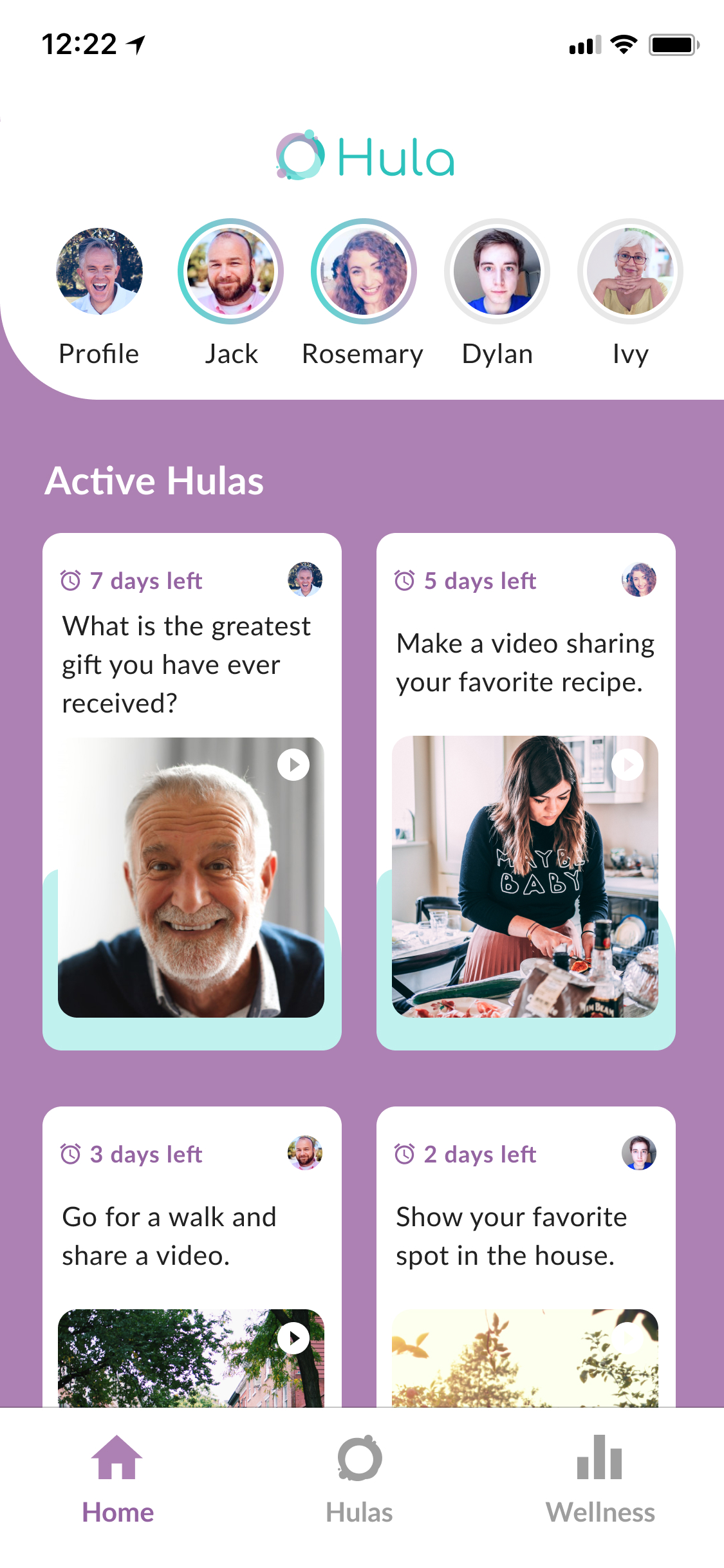
“Hulas” are fun video challenge prompts for the whole family to answer in their own short videos.
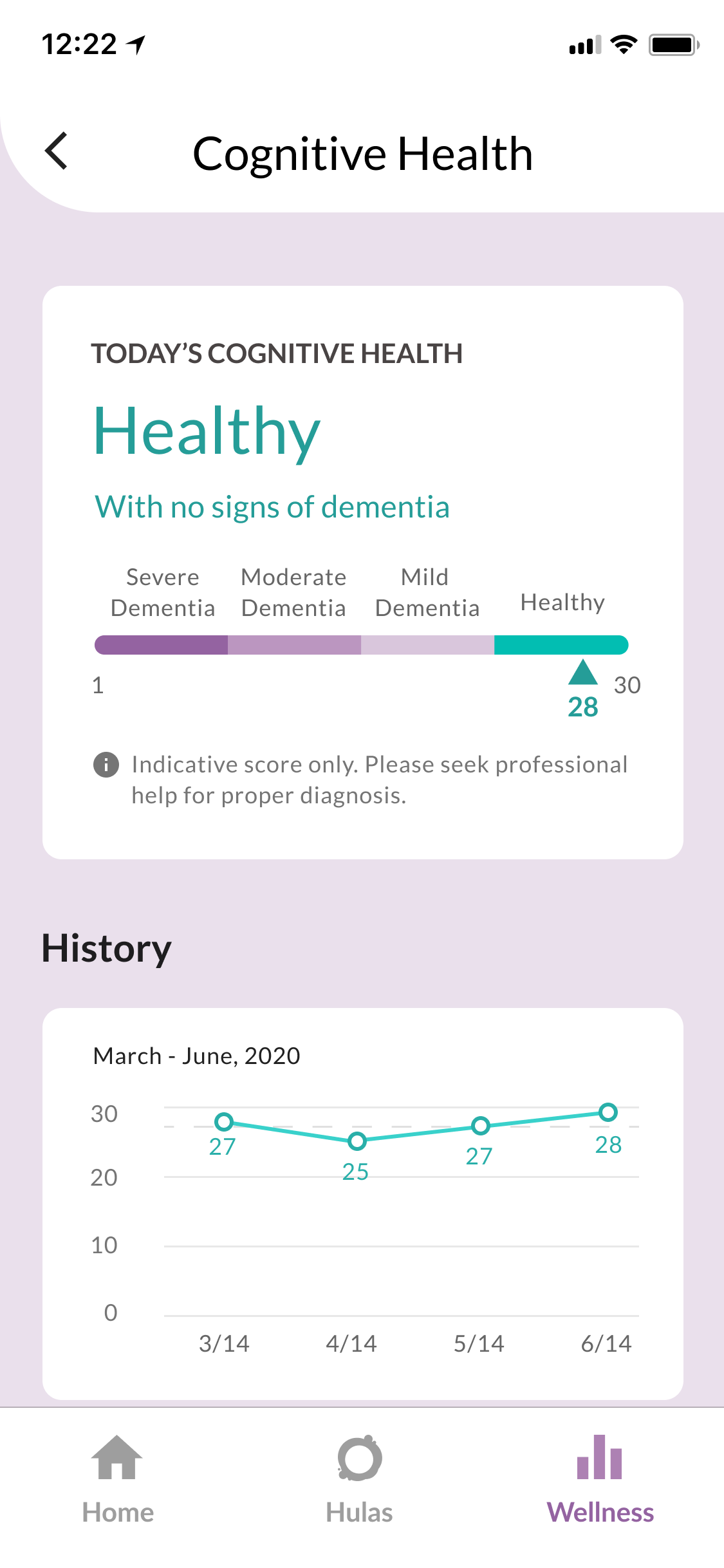
In-app wellness reporting leverages clinically-proven voice & video technology to detect key health markers from videos.
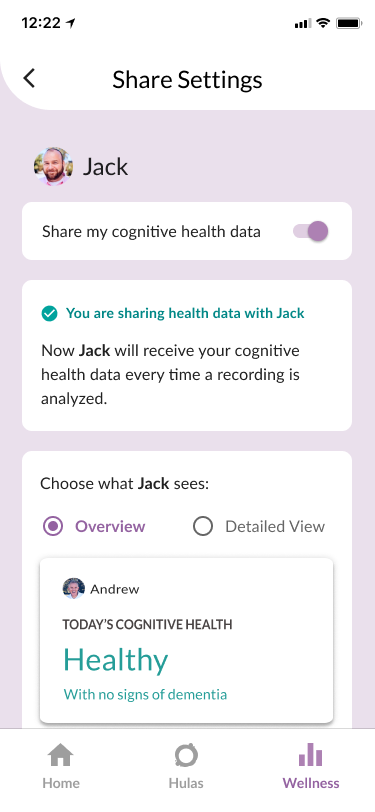
Sharing settings allow adult children to request their parents' data and aging adults to control the level of detail shared.
"This would help to develop a better conversation - more active, more fun - you'd just want to do it more!"
- Adult child
Evaluating usability, value, and data-sharing comfort
We focused rounds of user testing on evaluating Hula's concept clarity and ease of use, from creating a challenge to posting a video response to a challenge, and viewing voice and video-based wellness analysis. In early rounds we evaluated user trust in computerized wellness analysis. In later rounds, we discovered that aging adults felt more comfortable sharing analyses with their family when they could control the level of detail shared, and only if the child first requested it. This helped aging adults avoid a sense of burdening their family members.
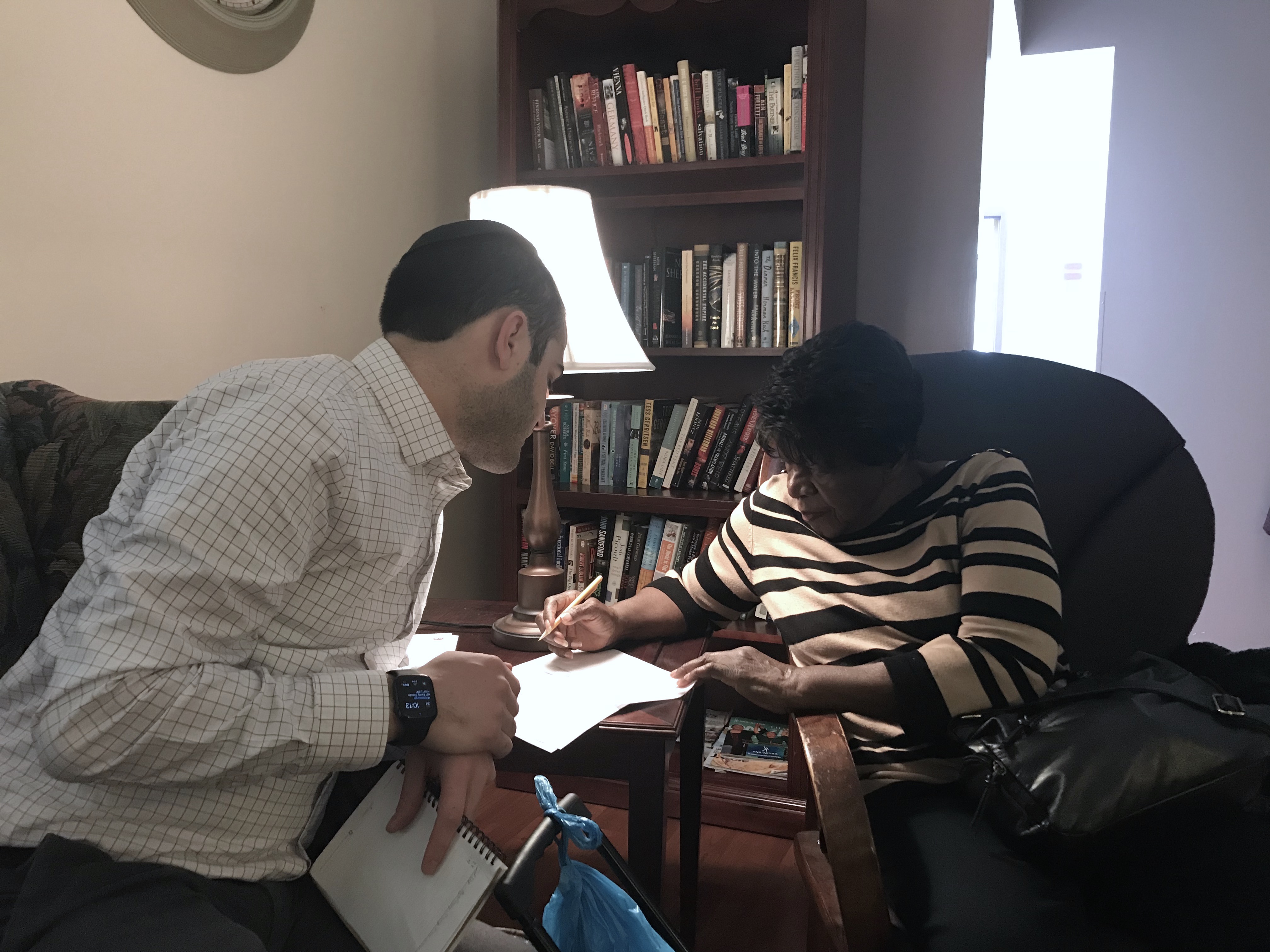
Nationwide Innovation is carrying forth our research and initial concept to further develop its offerings for these populations.
Over 7 months I had the pleasure of developing deep empathy with often invisible groups in our society: both caretakers and older adults. My greatest learning was
in pushing the limits of a concept - in this case, medical monitoring - and transforming it into a delightful experience by harnessing real human motivators.
© 2019 Infinitude. All rights reserved | Design by W3layouts & K. Johnstone